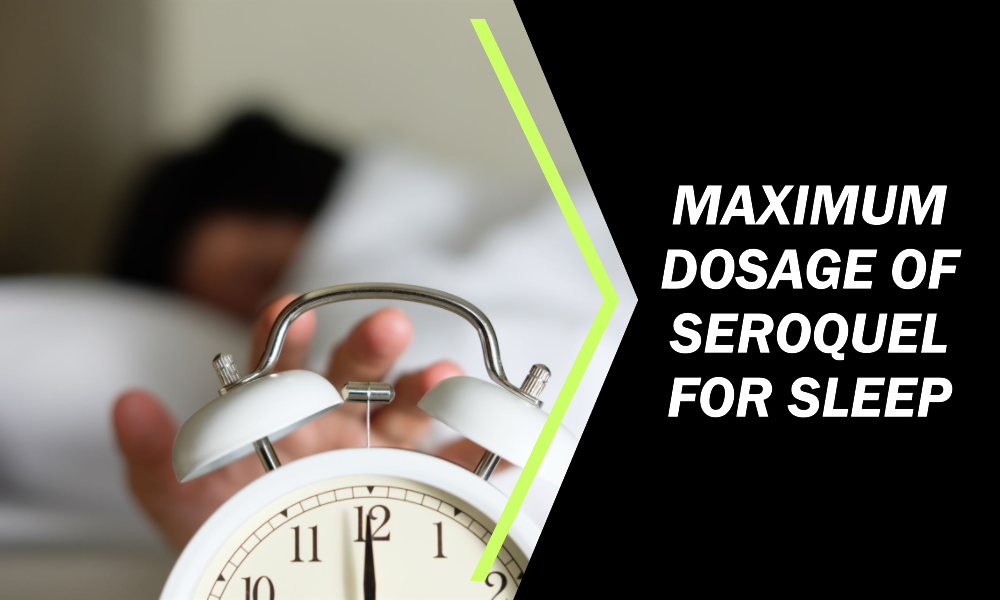Seroquel, whose generic name is quetiapine, is an atypical antipsychotic medication that is primarily used to treat schizophrenia, bipolar disorder, and major depressive disorder. However, in lower doses, it is sometimes prescribed off-label to treat insomnia or other sleep disorders due to its sedative effects. It’s important to understand the maximum dosage of Seroquel when used for sleep, as exceeding the recommended dose can have serious side effects.
Usual Dosing for Sleep
When Seroquel is prescribed for sleep disorders, it’s typically given at much lower doses than when treating psychiatric conditions. A common starting dose for sleep is 25mg to 50mg at bedtime. Some doctors may gradually increase the dose, depending on the patient’s response and tolerability. However, for sleep purposes, it’s rare for a doctor to prescribe more than 100mg per night.
Maximum Dosage
While the maximum dose of Seroquel for treating psychiatric conditions can be significantly higher, the dosage for sleep should be as low as effective to minimize the risk of side effects. The maximum dosage of Seroquel for sleep should not exceed 100mg per night unless specifically instructed by a healthcare professional who is monitoring the patient closely.
Side Effects and Concerns
Taking Seroquel, even at low doses, is not without risks. Some potential side effects include:
- Drowsiness or sedation
- Dizziness
- Dry mouth
- Weight gain
- Constipation
- Increased appetite
In some cases, Seroquel may also have an impact on heart rhythms and metabolic parameters, so patients taking this medication should be monitored closely by their healthcare provider.
Alternatives to Seroquel for Sleep
Because of the potential side effects and the fact that using Seroquel for sleep is an off-label use, some healthcare providers may recommend trying alternative treatments for sleep disorders. These might include:
- Other Medications: Such as standard sleep aids like zolpidem (Ambien), eszopiclone (Lunesta), or melatonin supplements.
- Cognitive Behavioral Therapy for Insomnia (CBT-I): This is a structured program that helps you identify and replace thoughts and behaviors that cause or worsen sleep problems.
- Lifestyle Changes: Such as creating a more consistent sleep schedule, improving sleep environment, or changing dietary habits.
Conclusion
The maximum dosage of Seroquel for sleep should not exceed 100mg per night, and it is usually prescribed at much lower doses. It’s important for patients to work closely with their healthcare provider to find the lowest effective dose that helps them sleep, and to monitor for any side effects. Additionally, it’s worth discussing alternative sleep treatments with a healthcare provider. Remember, never change your medication dose or regimen without consulting a healthcare professional.








Comments